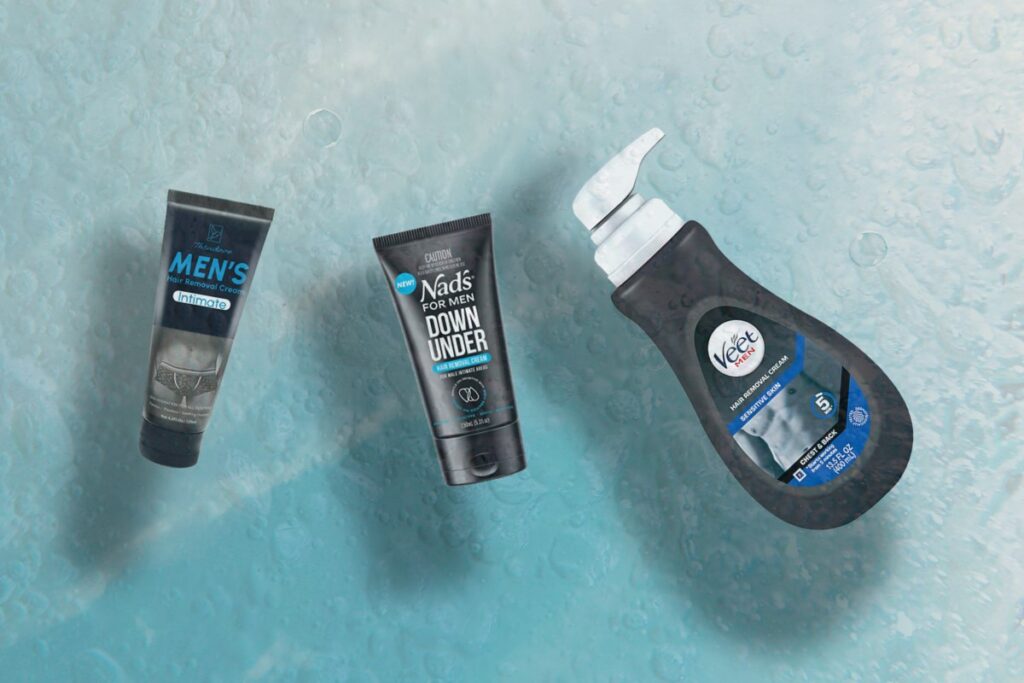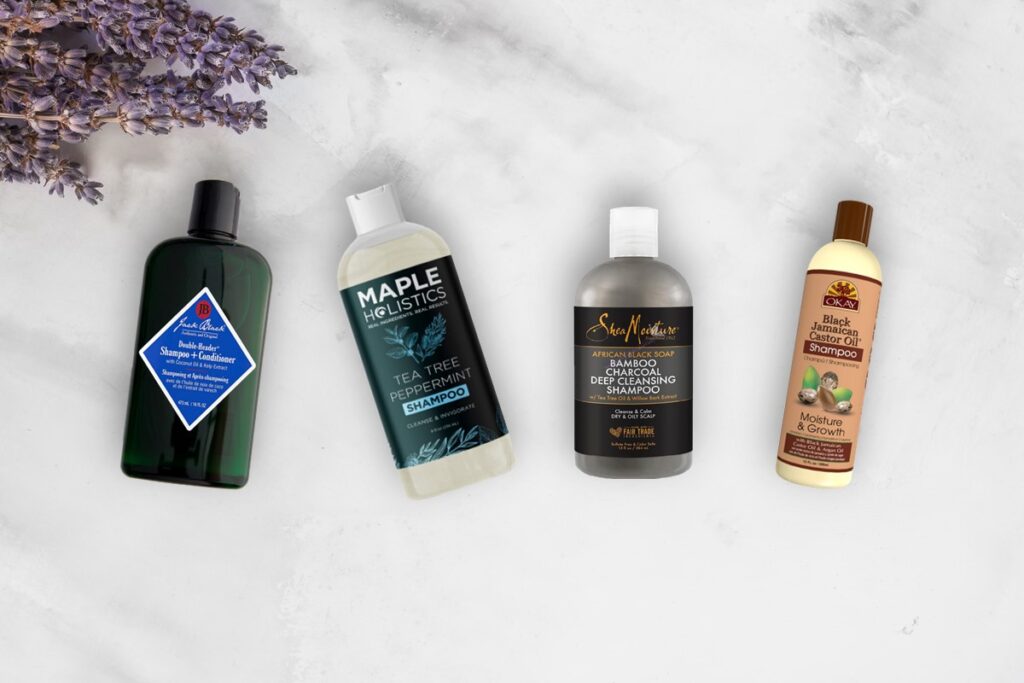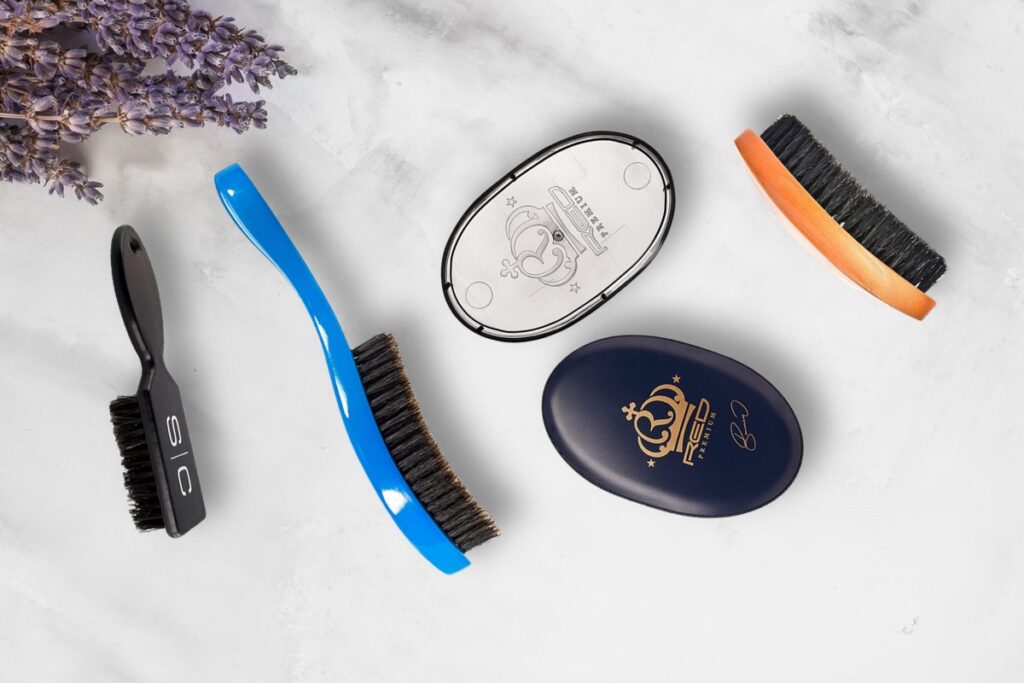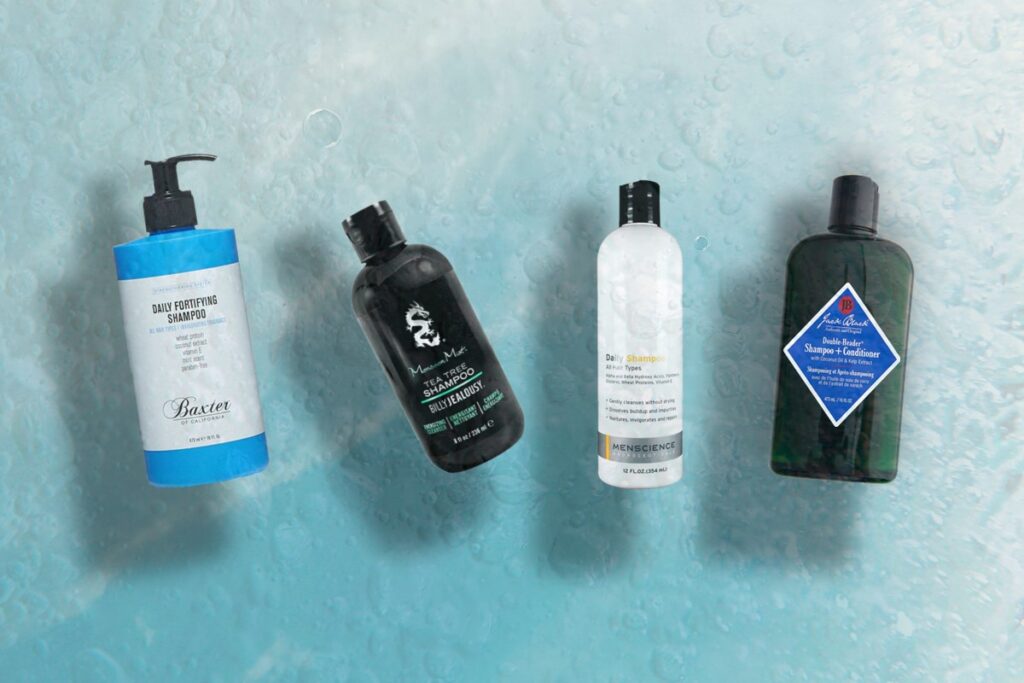I’ve always believed my dark skin would guard me against skin troubles, as it is often said, “black don’t crack.” But as men of color, we face a unique set of challenges. Melanin, our greatest strength, is also our greatest weakness.

While our surplus melanin helps stave off wrinkles, it doesn’t guard against hyperpigmentation. Our skin is more susceptible to the effects of inflammation and injury.
Celebrities like to say that the secret to clear skin is to drink a lot of water — and of course, use this product, buy this, and buy that. But not every product works for every skin type and supplements aren’t magical portions.
Also, drinking lots of water is good for your skin, but guzzling several refill bottles of H2O isn’t going to cure chronic eczema, razor bumps, dry skin, or acne. Neither will melanin.
That’s why I’ve started to get more serious about my skincare regimen. Fortunately, there’s something pros know that we don’t. So we spoke with dermatologists who specialize in treating black men to get their tips for glowing skin.
What we discovered is as follows:
Black Men’s Skin Care: How to Get Clear Skin
These anti-aging skin care tips will help black men get clear skin.
1. Find the Specific Needs of Your Skin
Just because a grooming routine works for one brother doesn’t mean it’ll work for you. Even though we are all members of the black community, our skin varies in texture, sensitivity, and tone.
Following a routine and expecting improvements but not noticing any can be discouraging. That’s why it is important to understand your skin type so as to choose a black men’s skincare regimen that’ll address your specific needs.
Someone with dry skin has to be selective about the kind of soap and cream to use. Also, if you have sensitive skin, it makes sense to use skin-friendly products, such as organic facial washes.
On the other hand, a black man with oily skin will generally have to choose his diet plan accordingly and eliminate the use of oily or aggressive products.
Many soaps, shampoos, and creams can dry out your skin. This can cause irritation or bumps if you have very sensitive skin. And you may have a hard time finding the right product if your skin is dry or normal in some areas and oily in others.
Knowing your skin type is a step in the right direction. If you’re not sure, you can have a dermatologist check your skin. This can also determine the kind of food to eat.
2. Eating Healthy Will Do Your Skin More Good Than Any Product
If you’re dealing with skin health issues — from dryness to breakouts, it’s time to consider what you’re putting in your body, not just what you’re putting on it.

Give Your Skin the Nutrients It Needs
Your skin reflects your health. And black men’s skincare starts on the inside. So give your skin the nutrients it needs to repair itself by eating a balanced diet. Take meals that are rich in lean protein, vitamins, minerals, and dietary fiber.
Sources of lean protein include tofu, fish, and legumes. An easy way to get more vitamins is to add lemons or limes to your water, make spinach and berry smoothies, and eat lots of fruits and vegetables.
Processed Food Can Ruin Your Skin
Experts say cutting down on alcohol and removing processed and sugar-packed foods from your diet may help improve skin health. Excessive intake of alcohol is known to worsen certain skin conditions, such as psoriasis.
Be Sure to Check If It Causes You Allergies
Note that certain foods may worsen the symptoms of acne or eczema. For instance, common food allergies associated with eczema include citrus fruits, dairy, gluten, soy, cloves, cinnamon, tomatoes, and some types of nuts.
Additionally, sugar is one of the biggest foods to avoid if you’re dealing with hormonal acne because of its effect on insulin levels. Dairy products and foods high in processed sugar may trigger acne. And it makes sense to avoid greasy food and junk food.
However, not everyone will have issues with these foods. Since we need a well-rounded diet, don’t stop taking these foods simply because you think they might worsen eczema or acne. Talk to a dermatologist first. They can do tests for food problems.
Getting to know your body and what foods work best for you personally is of the greatest possible importance. Fortunately, some foods contain properties that may help lessen flare-ups.
3. Fill Up on Fish, Quercetin, and Probiotics
Yes! There are foods that may help lessen or reduce the effects of some skin conditions.
Fatty fish, such as mackerel, sardines, and herring, may be able to reduce skin irritation. Fish oil contains high levels of omega-3 fatty acids, which have the ability to reduce swelling, redness, heat, and pain. It can also eliminate harmful agents from the body.

Food rich in quercetin can reduce allergic reactions. This includes broccoli, blueberries, kale, spinach, and cherries. They also help to remove free radicals and toxic substances from the body. Quercetin gives many flowers, fruits, and vegetables their rich color.
On top of that, probiotic-rich food can help reduce breakouts and hypersensitivity. They also strengthen the immune system. Foods containing probiotics include miso soup, soft cheese, sourdough bread, kefir, naturally fermented pickles, tempeh, and unpasteurized sauerkraut.
Probiotics aren’t created equal, different strains treat different issues.
Not every probiotic in the store will yield the results you’re looking for. So when you get to the store, don’t buy the first thing on the shelf. Lactobacillus rhamnosus is the specific strain for black men’s skin care.
Additionally, foods high in vitamin C can help reduce the absorption of elements that may cause breakouts. So eating plenty of fresh fruits and vegetables is advisable. This includes pineapples, oranges, cauliflower, mango, bell peppers, strawberries, and kale.
The fact is, vitamins are essential for good body function.
4. Your Skin Needs Vitamins
The most important thing for maintaining your glowing skin is staying healthy. Vitamins help your body grow and work the way it should. Vitamin deficiency can cause health and skin problems.
Most vitamins can be obtained through food, fruits, and vegetables. Vitamins C, D, E, and K are probably the most important vitamins we can take to improve the appearance of our skin. Apart from a healthy diet, another natural way to get vitamin D is sunlight.
The body absorbs vitamin D when we spend a few minutes in the sun. Even so, there is a fine balance between using sunscreen to prevent sunburn and going without it to get your vitamin D.
Experts say it’s best to go out early in the morning or late in the evening because the sun’s rays aren’t as strong. In any case, there’s such a thing as too much sun. It can cause premature aging. So be careful!
Talk to a doctor. They may do an assessment to help you decide which supplements and vitamins you need.
5. Drink the Right Amount of Water
To have glowing skin you need to drink the right amount of water. The right amount, not plenty, because too much water isn’t good either.
One simple trick to know if you are hydrated is the color of your urine. If you notice clear, transparent urine, it means you’re hydrated. Otherwise, drink more water. Don’t replace water with sodas, juices, coffee, or any other drink.
Don’t assume water alone can fix your skin.
While drinking an adequate amount of water is essential for your health, guzzling tons of water isn’t going to do much to soothe your dry skin. Drinking water doesn’t hydrate your skin any more than a bath quenches your thirst.
If you want muscles, you go to the gym. You don’t lie in bed all day watching videos of people in the gym. The same applies to having glowing skin like a male model. In addition to drinking water, you’ve got to improve other areas of your lifestyle.
6. Chill Out, Practice Good Bathing Habits
As calming as a hot shower can be, using hot water when bathing or washing your face can remove sebum from your skin. This can lead to dry skin, so try turning down the temperature a bit. The hotter the water, the more damaging to your skin. That’s why it is advisable to use warm or cold water.
The American Academy of Dermatology recommends reducing the time spent in the shower. Five to ten minutes or less will help heal dry skin. Brethren, spending too much time in the shower can strip your skin of its natural oils.
Additionally, make sure to properly moisturize as soon as you finish bathing or washing your face to help lock in moisture while your body is still damp.
7. Get Good Sleep
Sleep is just as important as what you’re putting on your skin, if not more.
Dr. Nayak says, “Sleep is so important because it is the only time our brain’s glymphatic system is active.” This system flushes waste away from the brain. It will be difficult for the body to remove toxic waste without sleep. And higher toxic waste equals… Do the maths!
Therefore, sleep is one of the most essential parts of our health. It’s important not only to get an adequate amount of sleep but also to get high-quality deep sleep. Your skin will thank you for it. Getting six to eight hours of sleep will rejuvenate your skin.
8. Cut Back on Stress
In an ever-so-busy society, relationships, work, and bank account balance can have you stressed. Try to find some calm whenever possible. This is necessary for maintaining healthy skin and keeping premature aging at bay.
Stress can wreak havoc on our skin. It escalates the aging process and impairs the body’s ability to repair and regenerate the skin. It worsens acne breakouts and hair loss.
Scale back the stress! Try not to think too much about things you cannot control. Engage in outdoor activities that can help reduce your stress levels.
What if stress has done a number on my skin?
9. Nourish Your Skin Regularly With Natural Products
Think about your skin like a sponge that wants to soak up all of the goodness you’re applying.
So what you apply to your skin is just as important as what you eat. That’s if you care about having clear skin. Some products absorb through our skin and into our bloodstream, especially if there are other chemicals present that increase the absorption rate.
It’s the reason why experts recommend the use of natural products. For example, the natural ingredients in beard oil have several benefits that’ll do your beard and the skin a whole load of good.
If you can’t pronounce it, it probably shouldn’t go on your body!
It is good practice to read the labels of black men’s skincare products and try to buy products that contain natural ingredients. Avoid products with harsh chemicals. They are most often overly hard to pronounce. Go for natural butter and oils. They make good cleansers and properly moisturize your skin.
So, do entire products absorb into my skin?
Not at all! It’s important to note that in most cases, it isn’t as simple as “I put argan oil on my skin, so argan oil is going to show up in my bloodstream.”
The environment and our bodies work to break down those larger products into many smaller parts. Besides, skin absorption rates vary from person to person.
The bottom line is, use natural products because they are less likely to cause skin problems.
10. Win the Battle Against Hyperpigmentation
The darkening of the skin in a certain area, popularly known as hyperpigmentation, can be left over as a result of inflammation after an eczema flare-up or a bout of acne. It is more common in darker-skinned people. The good news is, there are topical products you can use to lighten darkened areas.
Some specialized products help reduce the appearance of existing dark spots. These typically include ingredients like hydroquinone, kojic acid, licorice, azelaic acid, and glycolic acid which can get rid of hyperpigmentation.
- Hydroquinone is the gold standard agent that is often prescribed because it helps to block the enzymes that make melanin.
- Some studies show that vitamin C can reduce hyperpigmentation, protect against sun damage, and improve collagen levels. Even so, more studies into its effectiveness for these purposes are needed because vitamin C cannot easily penetrate the skin.
- Retinoids, on the other hand, can also help to get rid of dark spots. Topical products such as tretinoin can be very helpful.
It is also important to recognize the potential side effects. The use of hydroquinone can cause mild skin irritations. It can also make the skin become permanently pigmented by small brown deposits. However, how our skin reacts to lightening ingredients varies. And if you use a quality toner you may likely not experience any side effects. It also helps to take a break after 3 months of continuous use.
That said, even the evenest skin tone can develop hyperpigmentation after a few minutes in the sun. That’s why most dermatologists remind their patients about sunscreen. Sun exposure can also darken any hyperpigmentation that is already visible. And sunscreen can help prevent hyperpigmentation.
11. SPF is Key — Use Sunscreen Every Day
An uneven complexion is often the outcome of sun exposure in black people. According to one dermatologist, Amy McMichael, M.D., we can all get photodamage, irrespective of our ethnicity. We simply show it differently on our skin.
However, those with darker skin tend to show photodamage with hyperpigmentation that worsens over time on the cheeks and lower face. The extra melanin does still provide some benefits. Darker-skin individuals have more melanin content and are more resistant to sunburn and UV damage over time.
Yet, wearing sunscreen is still important because there’s such a thing as skin cancer. And sunscreen protects us from free radical damage that can cause skin cancer and early signs of aging.
Actually, knowing you should wear sunscreen and doing it are two different things. Finding a moisturizer with SPF 30+ that blends with darker skin can be difficult. Anything that’s chalky or pasty can make sunscreen a pain to wear. Try to add a few drops of a liquid bronzer, luminizer, or even face tint, if the SPF leaves a bit of a white residue. You don’t want to have a ghostly look.
The point is, sunscreen is one of the most important steps to having clear, healthy skin. That said, when it comes to using black men’s skincare products, you may wonder if more is better. Well…
12. More Product Does Not Equal Better Skin
Certain ingredients don’t play well together. For instance, exfoliating ingredients such as glycolic acid, salicylic acid, and benzoyl peroxide should not be used with retinol. Fellas, this can dry out your skin!
As a product hoarder, I have an entire cupboard filled with peels, serums, creams, masks, oils, and lotions. Yeah, I know that’s quite a lot, but guys, it’s my job. And it’s extremely tempting to pile on at least one of each every day and night because, well, it’s right there. But using several products doesn’t necessarily translate to having better skin. Too much product can clog pores.
I’d like to add that, as a black man, you should have non-comedogenic moisturizers in your grooming kit. They don’t clog pores.
13. Don’t Skip the Moisturizer
Dermatologists recommend picking a daily lotion that will absorb any excess shine.
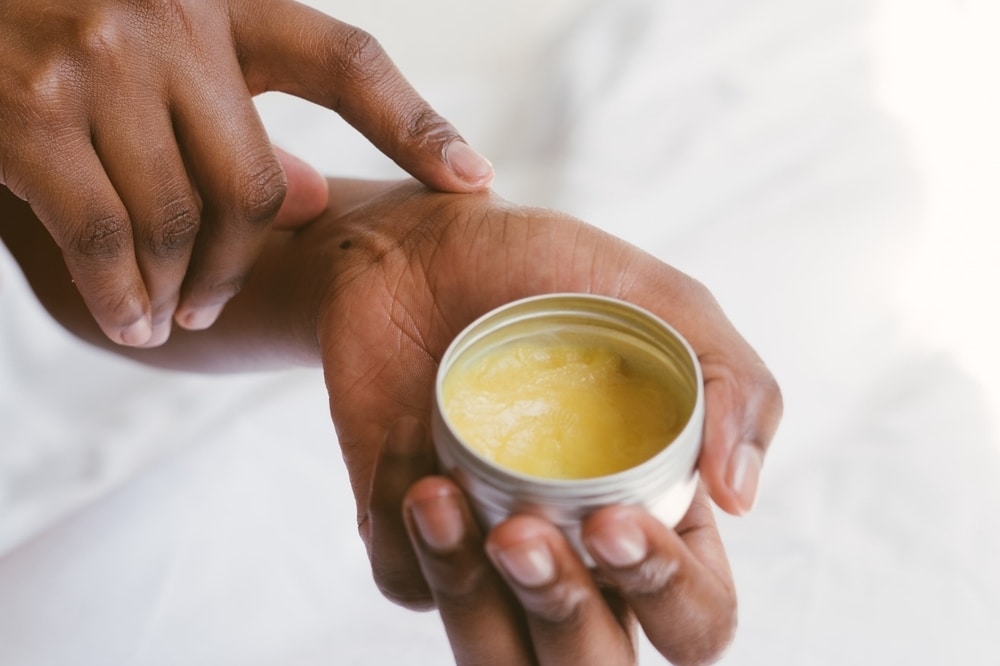
If your skin is oily, you might think you don’t need moisturizers, or even worse, get products with harsh chemicals that would essentially dry out your skin and actually worsen your skin health. That’s why it’s so important to pick the right moisturizer, so it doesn’t make your breakouts worse or cause your skin to become more oily.
Apply an oil-absorbing moisturizer that contains skin-friendly ingredients to absorb excess oil for a matte finish.
14. You Don’t Need to Spend $200 on a Skin Care Product
Hello! We’ve all heard about the miraculous powers of super-expensive potions and lotions, but there’s absolutely no reason why a black man should spend a fortune on a little hydration boost.
The truth is, most dermatologists prefer skincare products sourced from the drugstore. For instance, some dermatologists recommend drugstore-staple samples to people prone to acne breakouts or black men with a combination skin type. It’s just the best one, in their professional opinion.
15. Apply Black Men’s Skincare Products in the Right Order
It’s vital to first use the thinnest products such as an essence or serum and then follow with heavier moisturizers and oils, which help to seal everything in.
Oils, in particular, can create a barrier between skin and the air. So it’s pointless to apply anything on top of them.
Takeaway
Your skin is your body’s canvas and one of its most valuable assets. Unfortunately, as we grow older, our skin ages too. And in a beauty-obsessed society, this can make us feel less than who we are. Are you ready to take charge?
While expensive fillers, cleansers, and anti-aging creams can provide temporary solutions, they’ll probably rid you of your hard-earned money than your skin issues. Real change has to come from the inside out and improve the quality of your lifestyle.
I hope you find this article clear and comprehensive. And I look forward to hearing your feedback about how these skin care tips for black men helped you to get the smooth, clear, and healthy skin you desire.
About the Author

Dante Morton
Grooming ProfessionalDante Morton is a grooming professional and fashion expert. He has a jovial personality and a passion for black men’s skincare, as well as styling hair and beards of African-American men. Before joining GroomHour, Dante worked with several big players in the beauty industry. Join Dante and several monthly readers on GroomHour.com, and enrich your lifestyle with reliable grooming resources.
